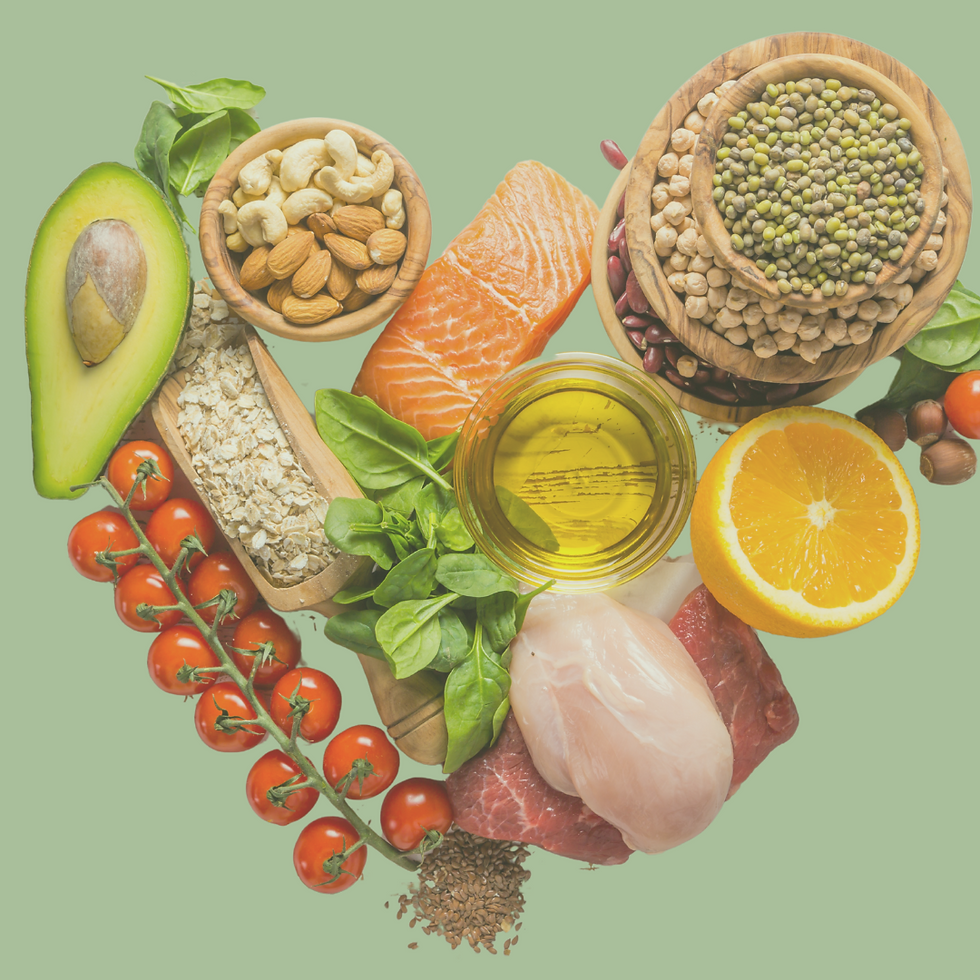Mental Health: Mind-Body Connection
- roshaydiamorgan
- May 13, 2025
- 3 min read
Because your mental wellness doesn’t exist in isolation, it’s part of a living, breathing ecosystem.

May marks Mental Health Awareness Month, a time when we’re invited to pause, reflect, and reimagine what mental wellness really looks like. While it’s easy to think of mental health as something separate from the body, research and lived experience both tell us: the two are deeply connected.
Here are three surprising truths that reveal just how intertwined your mental and physical well-being truly are—and why that matters.
Your Gut Is Talking to Your Brain

This might sound strange, but your gut and your brain are in constant communication through what's called the gut-brain axis. Roughly 90% of serotonin—the "feel-good" neurotransmitter—is produced in the gut. That means your digestion doesn’t just affect your comfort; it influences your mood, focus, and emotional regulation.
Things like poor diet, stress, antibiotics, or inflammation in the gut can actually contribute to symptoms of anxiety or depression. On the flip side, nourishing your digestion with fiber-rich foods, probiotics, and stress-reducing practices may have a positive impact on your mental clarity and emotional well-being.
🧩 Surprising but true: healing your gut might just help heal your mood.
Chronic Stress Feels Like Injury to the Body

We often think of stress as “just a mental thing”—but the body experiences chronic stress as a physical threat. When stress becomes constant, it keeps your nervous system in a heightened fight-or-flight mode, which can : Increase inflammation and disrupt sleep and digestion as well as Contribute: to headaches, tension, fatigue, and even chronic pain
Left untreated, prolonged stress can take a toll on nearly every system in your body.
Movement Heals—Even in Small Ways

We know that exercise helps mental health, but it’s not about hitting the gym hard or forcing yourself into a rigid routine. Even gentle forms of movement—like stretching, walking, yoga, dancing in your kitchen, or even breathing with intention can help shift your body out of stress mode.
Movement boosts your brain’s production of endorphins and dopamine, which help regulate mood, reduce anxiety, and improve sleep.
💬 Final Thoughts: The Ecosystem Within
Your body, mind, and spirit aren’t separate departments. They work together in a fluid, ongoing relationship. By tuning into one, we naturally support the others. This Mental Health Month, give yourself permission to explore healing in all its forms, nutritional, emotional, physical, and beyond. You don’t have to do it all. You just have to begin.
🌿 4 Everyday Mental Health Resources (You’ll Actually Use)
You don’t have to be in crisis to care for your mental well-being. These resources are supportive, free or low-cost, and frequently used by people across Ontario, Canada, and beyond.
🏥 Ontario: Bounce Back (by CMHA)
A free program for managing stress, anxiety, and low mood using guided workbooks and phone coaching.🌐 bouncebackontario.ca
🍁 Canada-Wide: Psychology Today (Therapist Finder)
Easily find therapists based on location, specialty, and availability. A widely trusted tool for connecting with mental health professionals.🌐 psychologytoday.com/ca
🧡 Indigenous-Focused: NWAC – Health and Well-Being
The Native Women's Association of Canada offers culturally grounded wellness programs for Indigenous women, Two-Spirit, and gender-diverse people.🌐 nwac.ca
🌍 Global: Insight Timer
A free mindfulness app with thousands of guided meditations, sleep tools, and expert-led courses for daily mental wellness.🌐 insighttimer.com
We are also here to help and support your mental health journey. Our naturopath can help guide you towards helpful and supportive habit and supplementation if necessary. Our mental health counsellor can also help you to feel supported and help you with tools that can support your mental health. Click on the link below to get started.
📚 Citations & Sources
Here are the credible sources and references used in the blog post:
Mayer, E. A. (2011). Gut feelings: the emerging biology of gut–brain communication. Nature Reviews Neuroscience, 12(8), 453–466. https://doi.org/10.1038/nrn3071
McEwen, B. S. (2006). Protective and damaging effects of stress mediators: central role of the brain. Dialogues in Clinical Neuroscience, 8(4), 367–381. NCBI
Rebar, A. L., Stanton, R., Geard, D., Short, C., Duncan, M. J., & Vandelanotte, C. (2015). A meta-meta-analysis of the effect of physical activity on depression and anxiety in non-clinical adult populations. Health Psychology Review, 9(3), 366–378. Taylor & Francis Online
Mental Health Commission of Canada. (2023). Understanding the Connection Between Mental and Physical Health. mentalhealthcommission.ca


Comments